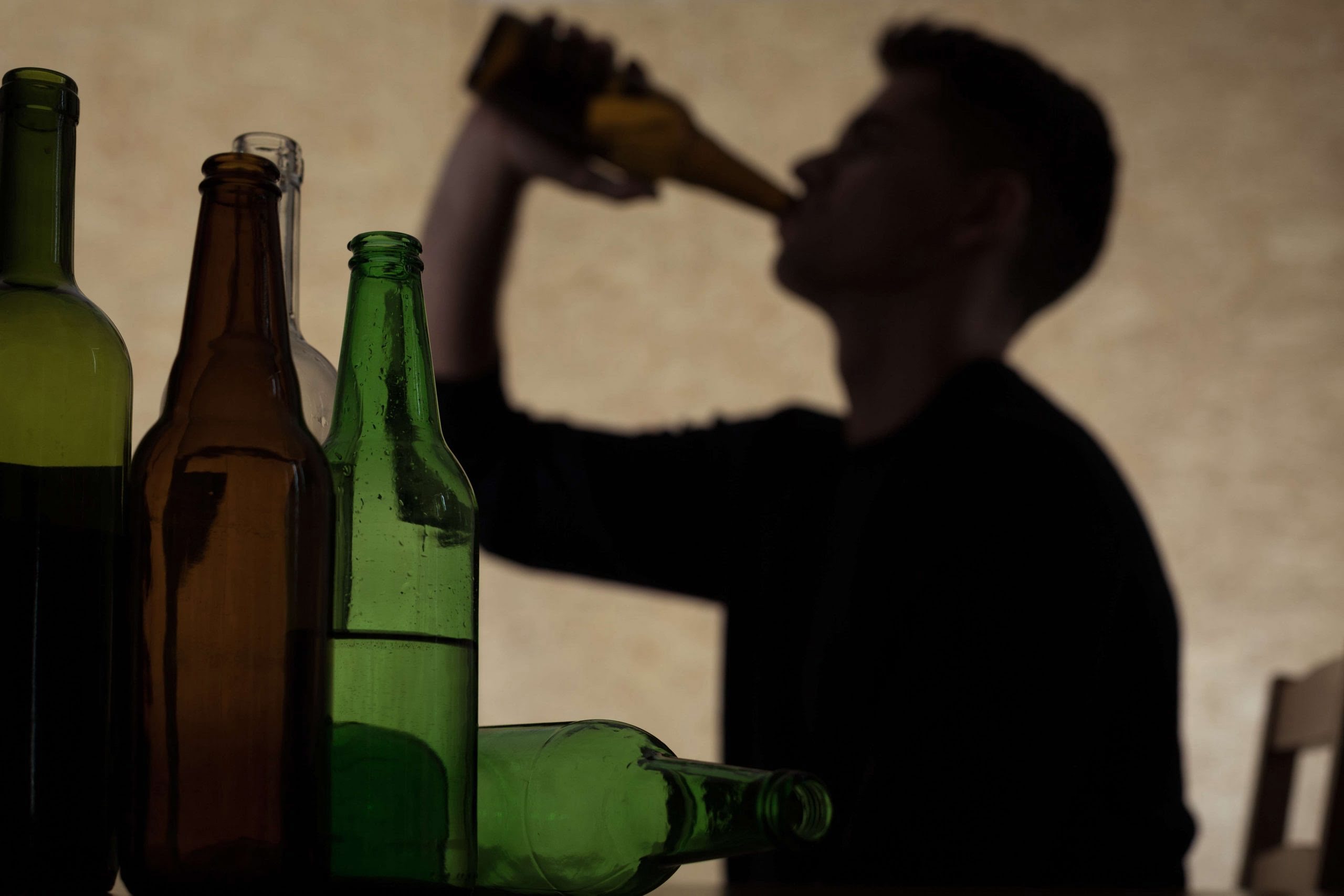Nurturing that connection with them includes being involved in their lives and having open, honest communication. Injecting drugs with shared needles increases the risk of contracting HIV, hepatitis B, and hepatitis C. Inhalants are fumes from gases, glue, aerosols, or solvents that can damage the brain, heart, lungs, kidneys, and liver.
Medical Professionals
It’s also important to note that, in 2017, among adolescents aged who used marijuana, 22% were depressed. A psychiatric disorder, particularly depression, also may increase the risk of marijuana abuse. According to SAMHSA, some adolescents (5%) had marijuana use disorder in 2022, which substance use disorder sud means they experienced adverse consequences of their drug use and yet couldn’t give the drug up. Overall, nearly 4% of kids said they’d used alcohol or drugs in the past month, and there was no evidence that parents’ monitoring had increased the teens’ likelihood of getting caught.
Changes in their social group
And if they are lonely or dealing with stress, teens may use substances to distract from these feelings. If those friends are older, teens can find themselves in situations that are riskier than they’re used to. For example, they may not have adults present or younger teens may be relying on peers for transportation. Teens may be more likely to try substances for the first time when hanging out in a social setting.
- When someone uses these or other substances on a regular basis, a healthcare professional may diagnose a substance use disorder.
- For example, the PreVenture workshop that targets anxiety sensitivity helps young people learn to challenge cognitive distortions that can cause stress, then ties that skill back to their own goals.
- So if their friends use substances, your teen might feel like they need to as well.
- These products may contain nicotine or other synthetic substances that damage the brain and lungs.
- The study cited a “critical need” for policies that address people using substances and their children and other family members who are potentially harmed by a parent’s substance use.
News Releases
Previous studies have found that teens are less likely to use drugs, alcohol or tobacco if they have parents who remain aware of their activities, know their friends, and know their whereabouts when they aren’t home, researchers said. Even as the nation has expanded the use of harm-reduction strategies and availability of the overdose-reversal medication naloxone, the study noted there has been a lack of focus on parents. While studies have shown that such a focus might be useful, researchers said interventions such as peer-to-peer parenting training often aren’t included in drug treatment. The nation’s overdose deaths spiked last decade due to fatal episodes with opioids, then heroin. In recent years, overdose deaths have accelerated further with the widespread availability of cheap, illicit fentanyl, which is often combined with other substances.
One thing not to do is to overly normalize drug use or to imply that it is widespread, Weiner said. Young people are also seeing and sharing content about substance use on social media, with a rise in posts and influencers promoting vaping on TikTok and other platforms (Vassey, J., et al., Nicotine & Tobacco Research, 2023). Research suggests that adolescents and young adults who see tobacco or nicotine content on social media are more likely to later start using it (Donaldson, S. I., et al., JAMA Pediatrics, Vol. 176, No. 9, 2022).
This video for middle school students describes the effects of addiction and how getting high can take over your life. This brochure addresses concerns of children and family members of people living with substance use disorders. For the first time in a decade, overdose deaths among teens in the United States rose dramatically in 2020 and kept rising through 2021 as well.
Research has shown that the best treatment for teens is one that involves therapy with the entire family, as well as cognitive behavioral therapy (CBT) or a combination of therapeutic methods. It can be very hard and even scary to notice signs of a substance use disorder in your child — and it can be even harder for your teen. If your teen has developed a substance use disorder, you may notice that they eat or sleep too much or too little.
“It was important to do this study to bring attention to the needs of these children,” Volkow said. When a child loses a parent, “that person is no longer there providing the support for the family and that leaves the children very unprotected.” The activity has been proven to be extremely dangerous in many situations, with drunk driving accidents killing thousands of teens each year.
SAMHSA’s mission is to lead public health and service delivery efforts that promote mental health, prevent substance misuse, and provide treatments and supports to foster recovery while ensuring equitable access and better outcomes. The survey also documents students’ perception of harm, disapproval of use, and perceived availability of drugs. Notably, the survey results are released the same year the data are collected.
That’s how much the rate of children who lost a parent to a drug overdose increased over the course of the study from 2011 to 2021. In 2011, the rate was 27 per 100,000, and in 2021 it was 63.1 per 100,000, according to the study. More than 321,000 children in the United States lost a parent to a drug overdose between 2011 and 2021, according to a new report published Wednesday in JAMA Psychiatry that provides a better understanding of the impact the opioid crisis has on victims’ families. The researchers then used these data to estimate the number of children of the nearly 650,000 people who died of an overdose in 2011 to 2021 based on the national mortality data from the CDC National Vital Statistics System. The data were examined by age group (18 to 25, 26 to 40, and 41 to 64 years old), sex, and self-reported race and ethnicity.
The study found that fentanyl-related deaths increased from 253 in 2019 to 680 the following year. If your teen denies using drugs and you think they are lying, communicate the negative consequences of drug and alcohol use. Be clear that you want them to be safe and that experimenting with substances is dangerous—even if it’s just one time. If you are not able to keep the line of communication open with your teen, talk to their healthcare provider. They can help connect you to resources and support you in taking more decisive action, like drug testing. The intervention can be customized to the needs of a given community (in one trial, drag racing outstripped substance use as the most problematic thrill-seeking behavior).
I asked child and adolescent psychiatry and addiction experts Vinson and Marc Potenza about the consequences of teen use of marijuana, and both said the impact of cannabis on the developing brains and behavior of young people is a special concern. The highest number of deaths were among white parents, but children of American Indian or Alaska Native parents experienced the highest rates of loss, the study found. Children with young Black parents between the ages of 18 and 25 experienced the highest increase in the rate of loss each year.
You friends’ to schedule a doctor’s appointment doctor’s for any medical issues that might prompt substance use. For example, your teen might be using stimulants because of debilitating fatigue. If you suspect your child is self-medicating a mental health issue, a therapist or other mental health professional may be able to help. Psych Central’s article on therapy and cost-reduction options offers suggestions if a therapist isn’t in your budget. The encouraging news is that treating issues like depression and anxiety can reduce or end substance use or even prevent it from starting. With this article, you’ve already made a first step toward educating yourself about teen substance use disorder and how to help your teen recover.
While drug use can lead to mental health disorders, sometimes it’s the other way around. Alcohol is the most commonly abused substance among teens, but rates of nicotine and prescription medication abuse are increasing. Examples of prescription drugs teens may misuse include stimulants like Adderall and benzodiazepines like Xanax. Help prevent alcohol withdrawal delirium by talking to your teen about the consequences of using drugs and the importance of making healthy choices. Modern prevention programs also acknowledge that young people use substances to serve a purpose—typically either social or emotional in nature—and if adults expect them not to use, they should help teens learn to fulfill those needs in a different way, Weiner said.
Despite these tragic numbers, no national study had previously estimated the number of children who lost a parent among these deaths. NSDUH defines a parent as biological parent, adoptive parent, stepparent, or adult guardian. An estimated 321,566 children in the United States lost a parent to drug overdose from 2011 to 2021, according to a study published in JAMA Psychiatry. The rate of children who experienced this loss more than doubled during this period, from approximately mixing alcohol and antidepressants 27 to 63 children per 100,000. The highest number of affected children were those with non-Hispanic white parents, but communities of color and tribal communities were disproportionately affected. The study was a collaborative effort led by researchers at the National Institutes of Health’s (NIH) National Institute on Drug Abuse (NIDA), the Substance Abuse and Mental Health Services Administration (SAMHSA), and the Centers for Disease Control and Prevention (CDC).

